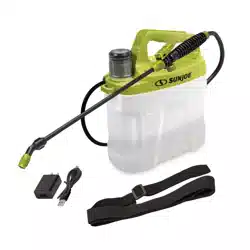Loading ...
Loading ...

3
Battery + Charger
Safety Instructions
This manual contains important safety and operating
instructions for your battery and charger.
1. Before using the charging, thoroughly read all instructions
and cautionary markings.
mWARNING! If the motor housing is cracked or damaged,
do not insert the charging adaptor into the power tool or plug
the power tool into the mains outlet. There is a danger of
electric shock or electrocution.
2. This charger is ONLY intended to charge this rechargeable
battery. Any other use poses a risk of re, electric shock
or electrocution.
3. Do not place any object on top of the charger or place
the charger on a soft surface that may result in excessive
internal heat. Keep the charger away from any heat
source.
4. To reduce the risk of damaging the electric plug and
cord, pull the plug, not the cord, when disconnecting the
charger from the electric outlet.
5. Make sure the battery charging cable is located in a safe
place so that it will not be stepped on, tripped over or
otherwise subjected to damage or stress.
6. An extension cord should not be used unless absolutely
necessary. Using an improper extension cord poses a risk
of re, electric shock or electrocution.
7. Do not operate the charger if it has received a sharp
blow or has become damaged in any way. Contact the
Snow Joe
®
+ Sun Joe
®
customer service center
at 1-866-SNOWJOE (1-866-766-9563) before
continuing use.
8. Do not disassemble the charger. If the charger requires
service or repair, contact an authorized Snow Joe
®
+
Sun Joe
®
dealer or call the Snow Joe
®
+ Sun Joe
®
customer service center at 1-866-SNOWJOE
(1-866-766-9563). Incorrect reassembly poses a risk of
electric shock, electrocution or re.
9. To reduce the risk of electric shock, unplug the charger
from the outlet before cleaning the unit.
10. Never attempt to connect two (2) chargers together.
11. DO NOT store or use the tool in locations where the
temperature may reach or exceed 104 ºF (40 ºC).
Dangerous storing locations include outdoor sheds or
metal buildings in the summer.
12. The charger is designed to operate on standard household
electrical power (100-240 V). Do not attempt to use it with
any other voltage!
NOTE: The integrated battery is not fully charged out of
the carton. Read the safety instructions and then follow
the charging notes and procedures.
13. The longest life and best performance can be obtained if
the integrated battery is charged when the air temperature
is between 64.4ºF – 75.2ºF (18ºC – 24ºC). Do not charge
the battery pack when the air temperature falls below
41ºF (5ºC) or above 105ºF (40.5ºC). Following these safety
measures will prevent damage to the battery pack.
14. Do not incinerate the integrated battery even if it is
seriously damaged or completely worn out. The battery
can explode in a re.
15. Battery chemicals cause serious burns – Never let a
damaged battery pack contact the skin, eyes or mouth.
Under abusive conditions, liquid may be ejected from the
battery; avoid contact. Liquid ejected from the battery
may cause irritation or burns. If a damaged battery pack
leaks battery chemicals, use rubber or neoprene gloves
to safely dispose of it. If skin is exposed to battery uids,
wash the aected area with soap and water and rinse
with vinegar. If eyes are exposed to battery chemicals,
immediately ush with water for 20 minutes and seek
medical attention. Remove and dispose of contaminated
clothing.
Protection from environmental inuences
1. Wear suitable work clothes. Wear safety goggles.
2. Protect your cordless tool and the battery charger from
moisture and rain. Moisture and rain can cause dangerous
cell damage.
3. Do not use the cordless tool or the battery charger near
vapors and ammable liquids.
4. Use the battery charger and cordless tools only in dry
conditions and at an ambient temperature of 41ºF – 105°F
(5°C – 40.5°C). Do not expose a battery pack or appliance
to re or excessive temperature. Exposure to re or
temperature above 265ºF (130°C) may cause explosion.
Loading ...
Loading ...
Loading ...
